Are shelves over radiators a good idea? Our experts share pros, cons and what to consider if you go for it
From safety to heating efficiency, our pros weigh in
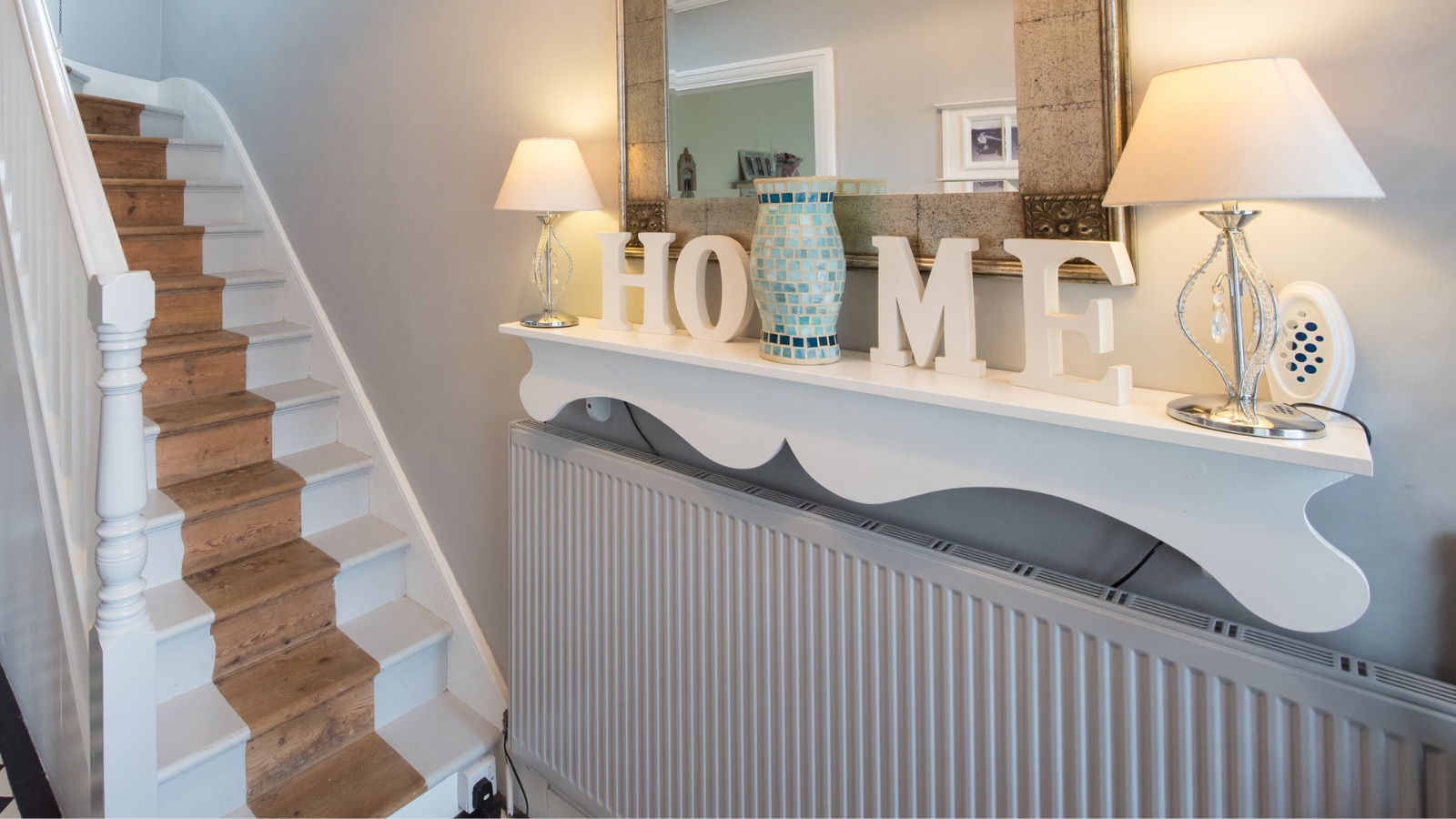

Shelves over radiators can serve both functional and aesthetic purposes, offering extra storage without taking up floor space. However, many people wonder if the practice is safe or impacts heating efficiency.
I spoke to home constructions and heating pros about the pros and cons of using shelves over radiators, how to install them safely, and what factors to consider.
Learning about this will help you decide if its an arrangement of your space that maximizes heating, and whether it's right for you.
Safety considerations
Wooden shelves are generally safe to use, but it’s important to choose the right type of wood and ensure there is enough clearance to avoid potential fire hazards or warping.
Safety is a key factor when installing shelves over radiators. Radiators can become quite hot, especially when running for extended periods. Placing heat-sensitive items, such as candles or electronics, on a radiator shelf can be dangerous.
Tyler Tranni, owner of Tranni Home Remodeling, says, 'Shelves over radiators can be fine if installed properly. I often use heat-resistant wood like oak at least six inches above radiators. At this height, heat can dissipate before damaging the wood. For safety, I securely bracket shelves to walls to prevent tipping.'
Proper installation is key, Tyler adds. 'I've seen poorly installed shelves overheat, scorching walls and floors. Following the manufacturer's guidelines for shelf height and weight capacity, using heat-resistant hardware, and giving enough clearance mitigates risks.'
Homeowners should consider their radiator's heat output as some models generate much more heat than others.
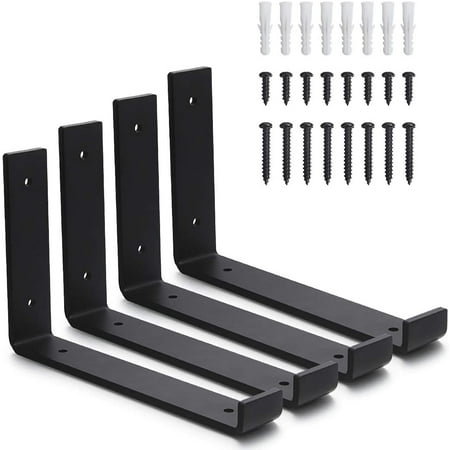
These heavy duty brackets come in a pack of four with screws, but you will need wall plugs to secure your shelving well to the wall.
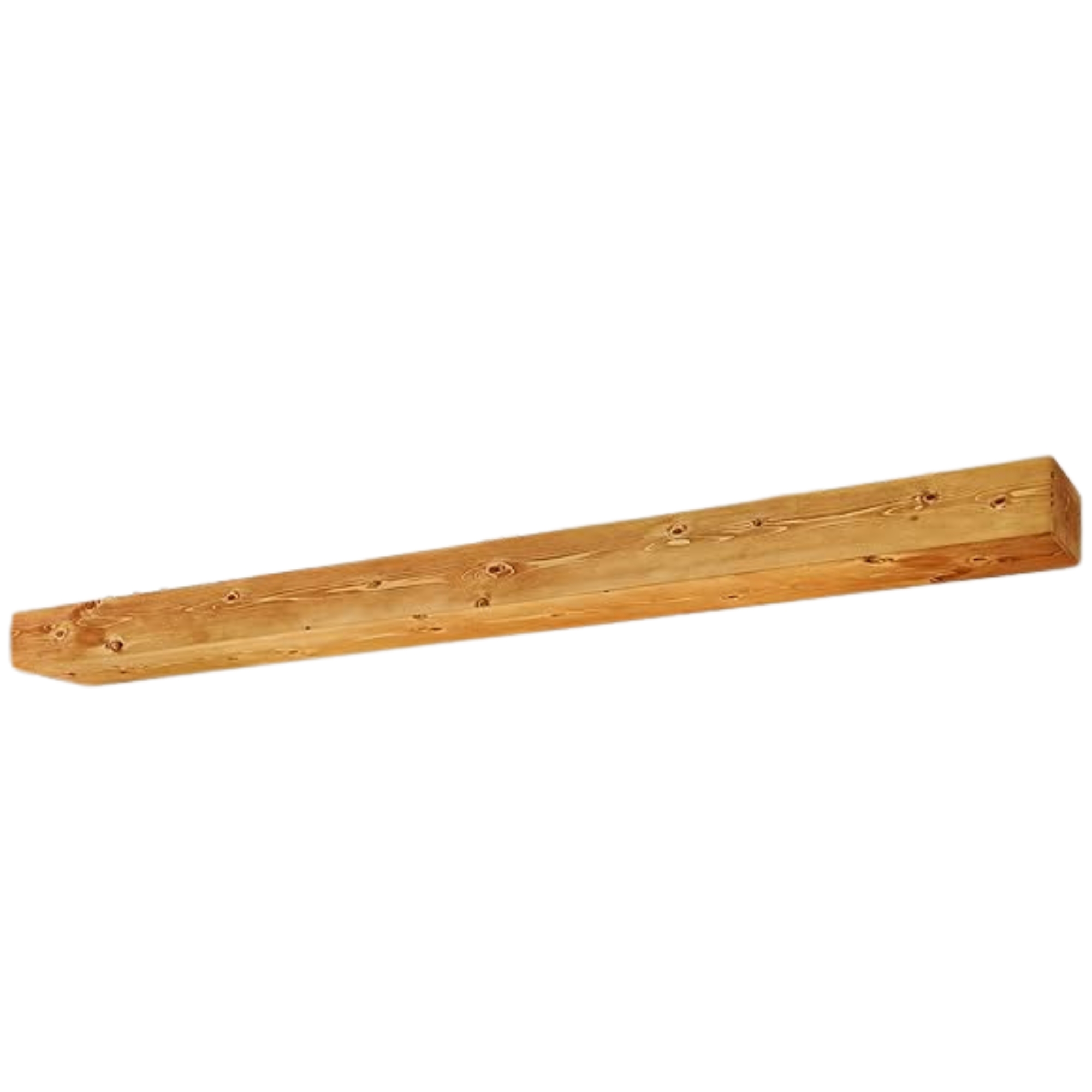
Made from solid pine wood, these heat-resistant floating fireplace shelves come in a range of sizes and colors.
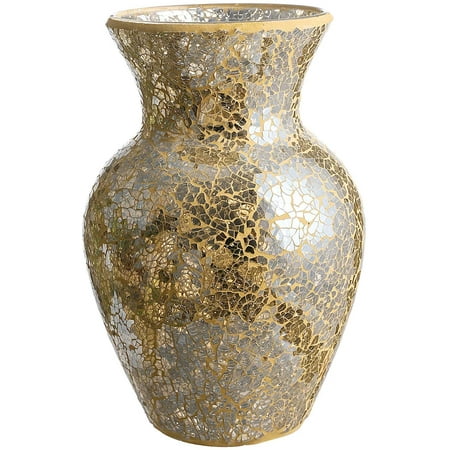
Style your over-radiator shelf with a pretty mosaic vase and faux flowers for a floral display that will not wilt in this heated area.
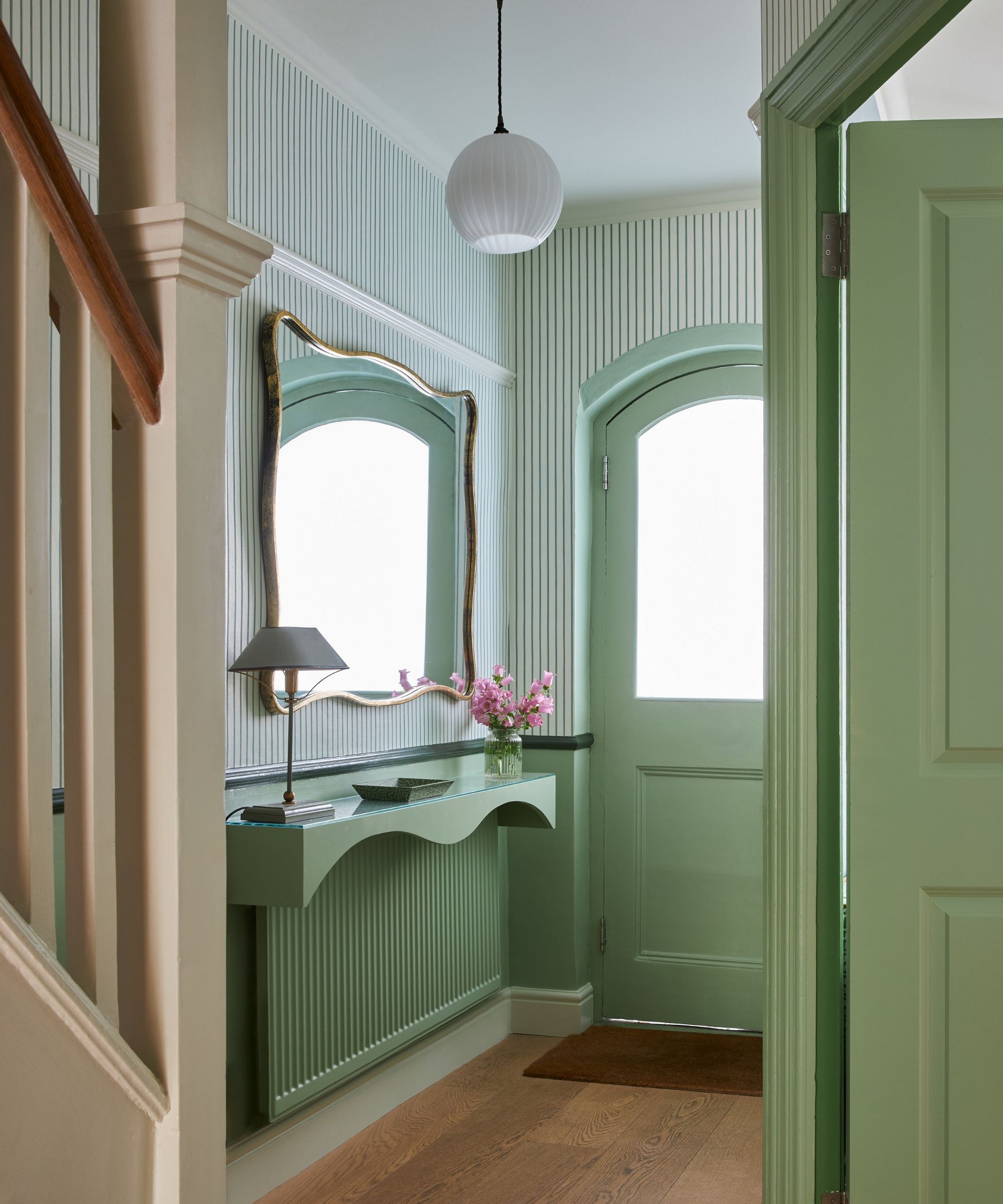
A beautifully coordinated entryway
These Hitomen Heavy Duty Floating Shelf Brackets, also from Amazon, ensure sturdy but concealed support.
Phil Oliver, owner of Air Treatment Company, recommends opting for heat-resistant hardwood shelves made from oak or maple – such as the Urban Legacy Unfinished White Oak Floating Shelves from Amazon.
He says, 'These are safe options since they can handle heat without warping or drying. In contrast, softwoods like pine may deteriorate more quickly in warm environments, which can create a fire hazard. If you’re installing any treated or laminated wood, it’s crucial to ensure they have a heat-resistant finish that won’t emit harmful fumes.'
Nick Chatzigeorgakis, founder of design-build experts Intrabuild, says, 'We install shelves at least six inches above cast iron radiators which produce intense heat, requiring greater clearance. For modern radiators, inches inches is typically sufficient. Proper bracketing secures shelves, preventing hazards.
'Hardwoods like oak work well for shelves over radiators as they’re heat-resistant. For extra safety, we recommend sheet metal between radiators and shelves. Our interior designers select stylish metal sheeting that complements the space and protects the shelf from damage or overheating.'
Radiator shelves require caution, but done right with the proper wood and installation, they can provide useful, attractive storage. The key is keeping a safe distance and using wood that withstands heat well.
Impact on heating efficiency
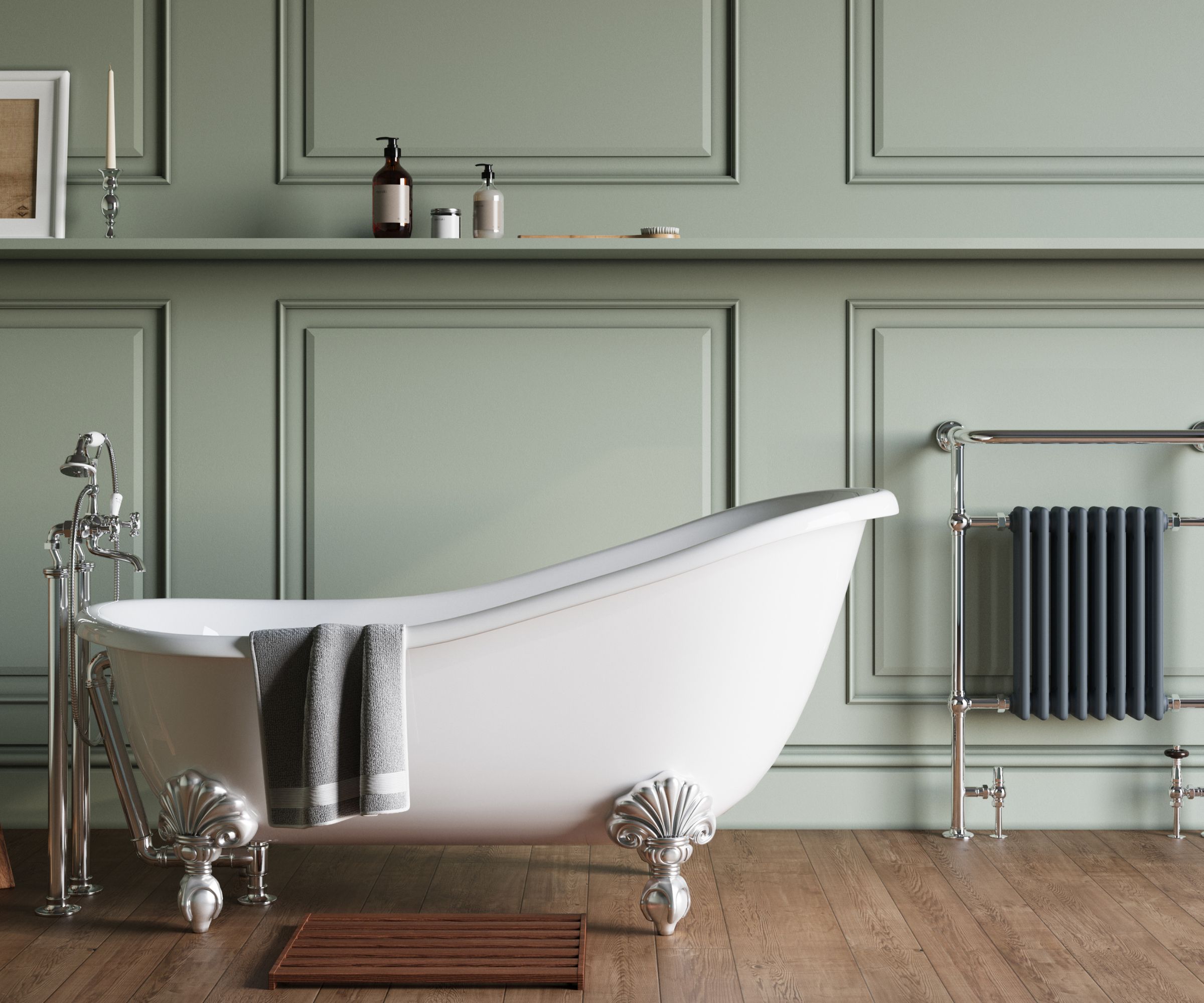
A properly-placed shelf with adequate height clearance from the radiator below
One of the main concerns with placing a shelf above a radiator is whether it might reduce heating efficiency. Radiators work by radiating heat into a room, and shelves can potentially block or redirect some of this heat.
However, a properly-positioned shelf, placed at a safe distance, can actually help distribute warmth more evenly by deflecting heat back into the room. This can be especially useful in rooms with high ceilings, as it helps prevent heat from rising too quickly and being wasted.
Oliver says, 'When it comes to heat distribution, the positioning of a shelf can influence the flow of heat in a room. A strategically-placed shelf can handily guide warm air forward. Shelves above radiators are best suited for living rooms and bedrooms, where they offer additional storage without significantly hindering heat distribution.'
For further heating tips, check out our guide on how to get your home ready for winter.
Functionality and design
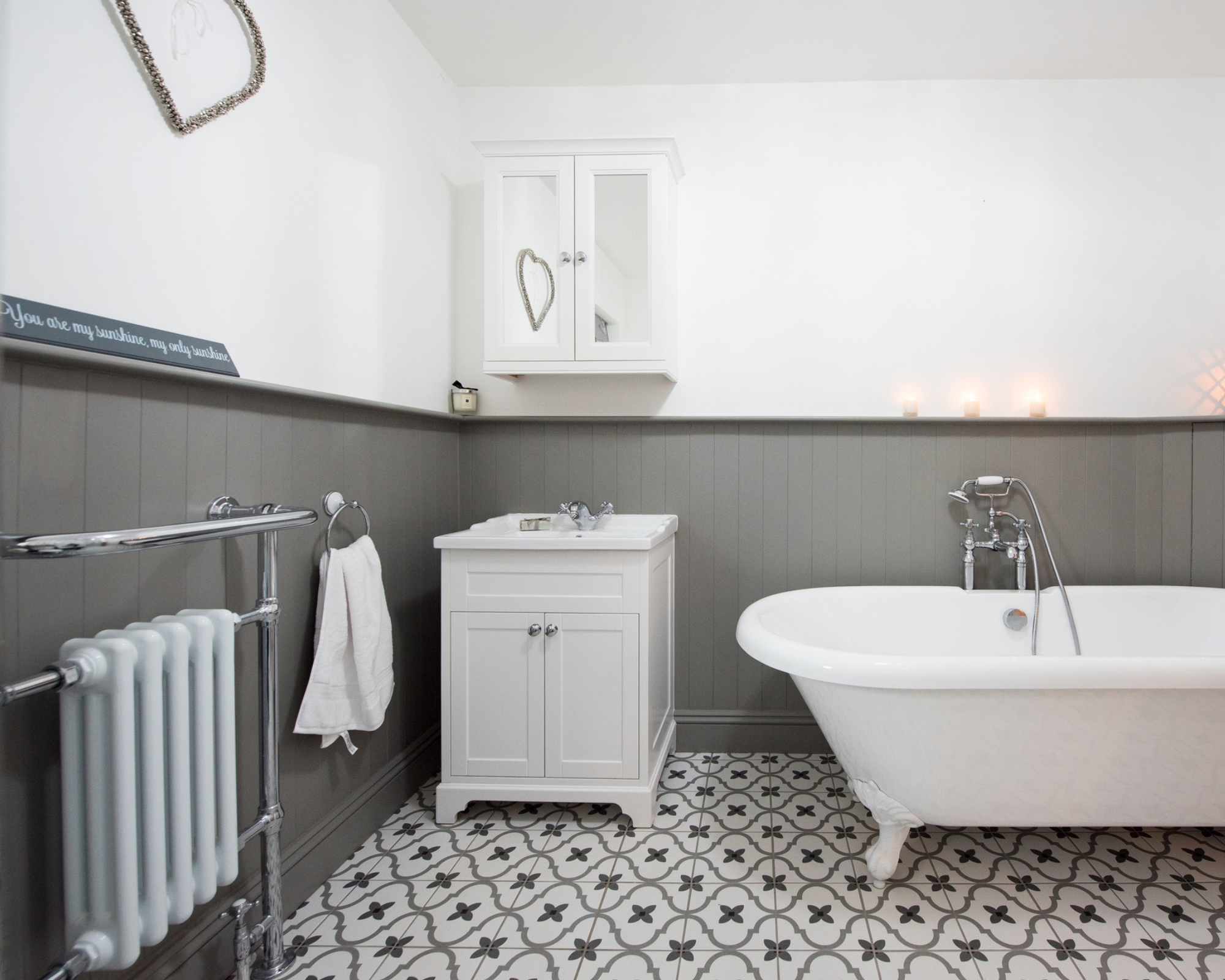
Adding a shelf over a radiator can help maximize vertical space, particularly in smaller rooms. It provides a practical spot for items like books, picture frames, or decorative plants.
Additionally, radiator shelves can help redirect rising heat, potentially preventing heat from being trapped under window sills or near curtains. From a design perspective, a well-placed shelf can also conceal an unsightly radiator while contributing to the room's decor.
Kevin Vander Hyde, vice president of home plumbing and service experts, Vander Hyde Services, says, 'For added safety and functionality, consider using radiator covers. These can help to reduce the risk of fire while also improving the overall appearance of your space.'
Vander Hyde recommends the Ready Covers EZ Connect Radiator Cover from Amazon for its combination of style and safety.
FAQs
Can shelves over radiators affect heating efficiency?
Yes, shelves can slightly reduce heating efficiency if placed too close. However, with proper placement, they can help direct heat more evenly into the room.
Can placing items on a radiator shelf be dangerous?
It can be, depending on the items. Avoid placing heat-sensitive objects like candles or electronics on the shelf to prevent hazards. Make sure to use a multi functional wall stud finder such as Amazon's Bestseller to help you identity the best spot to attach to the wall, and where to avoid drilling into metal pipes and electrics.
Can I use any type of wood for shelves over a radiator?
No, it’s best to use hardwood or heat-resistant materials to prevent warping or damage. Avoid untreated softwood, which may warp over time.
So there you have it — your complete answer to the question, 'Are shelves over radiators a good idea?'
Shelves over radiators can be both functional and stylish, but they require careful consideration of factors such as heat distribution and safety. By ensuring the shelf is installed at a proper distance from the radiator and choosing the right materials, you can enjoy the added storage without compromising heating efficiency or safety.
Next, check out how to clean behind radiators effectively, and the entryway shelving ideas that blend style and function.
Sign up to the Homes & Gardens newsletter
Design expertise in your inbox – from inspiring decorating ideas and beautiful celebrity homes to practical gardening advice and shopping round-ups.

With more than a decade of experience writing news, lifestyle, consumer, and human interest articles for a wide range of national and international publications, Andy is a highly-qualified journalist writing features for the national press. From front porch to backyard, attic to basement, Andy has written about every area of the home. He specialises in bringing together the best industry expertise to answer all of your most pressing home and garden questions about seasonal and everyday cleaning, decluttering, organizing and DIY.
-
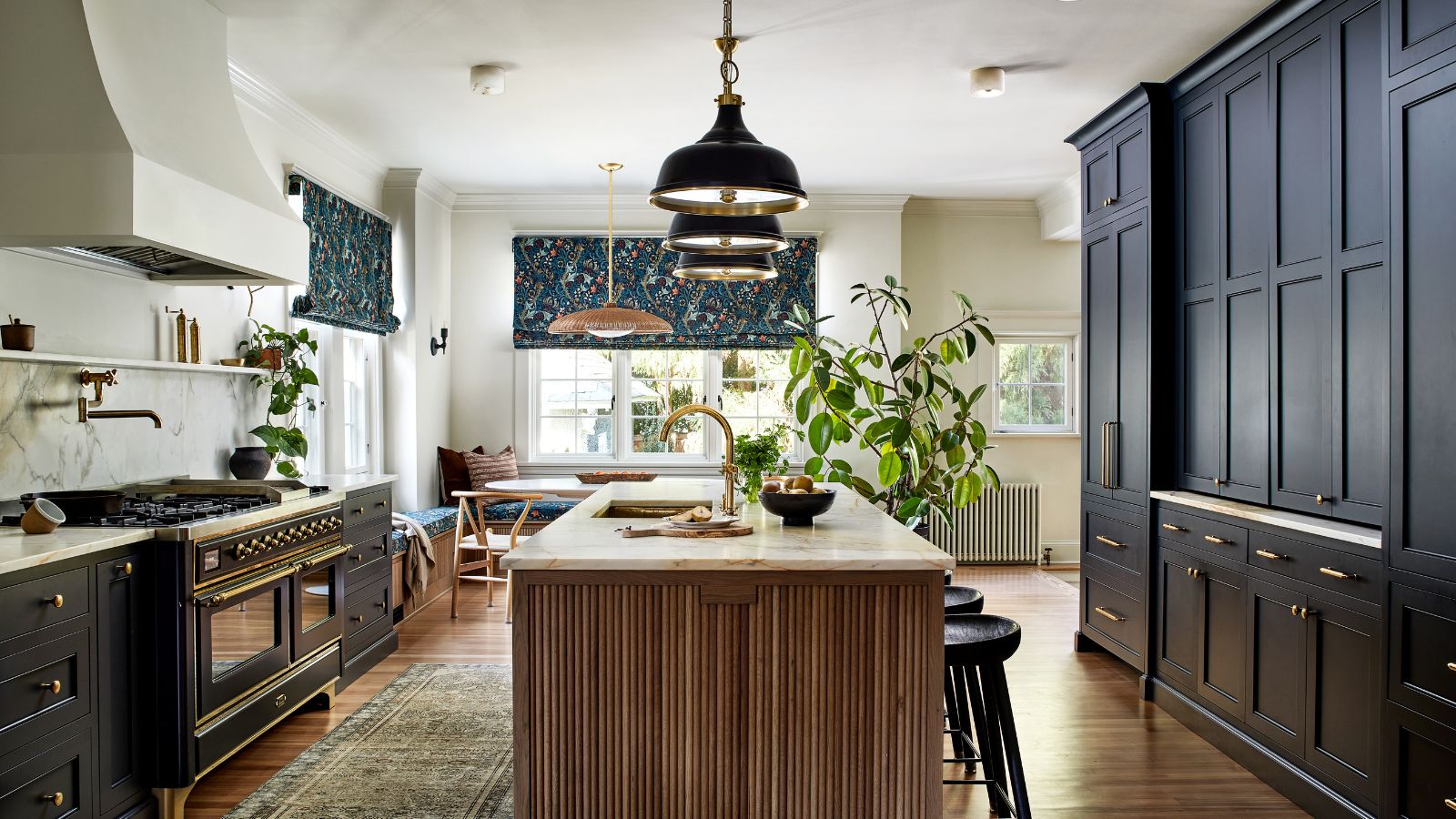 This once-dated kitchen is now a timeless space with the coziest details – and its the classic color palette that's made it a chic, welcoming space
This once-dated kitchen is now a timeless space with the coziest details – and its the classic color palette that's made it a chic, welcoming spaceWarming colors and natural materials combine to create this enduringly classic kitchen scheme
By Molly Malsom Published
-
 How to grow crepe myrtle in pots – and transform even the smallest of yards with dazzling flowers this summer
How to grow crepe myrtle in pots – and transform even the smallest of yards with dazzling flowers this summerGrowing crepe myrtles in pots will inject splashes of brilliant color into your outside space
By Thomas Rutter Published
-
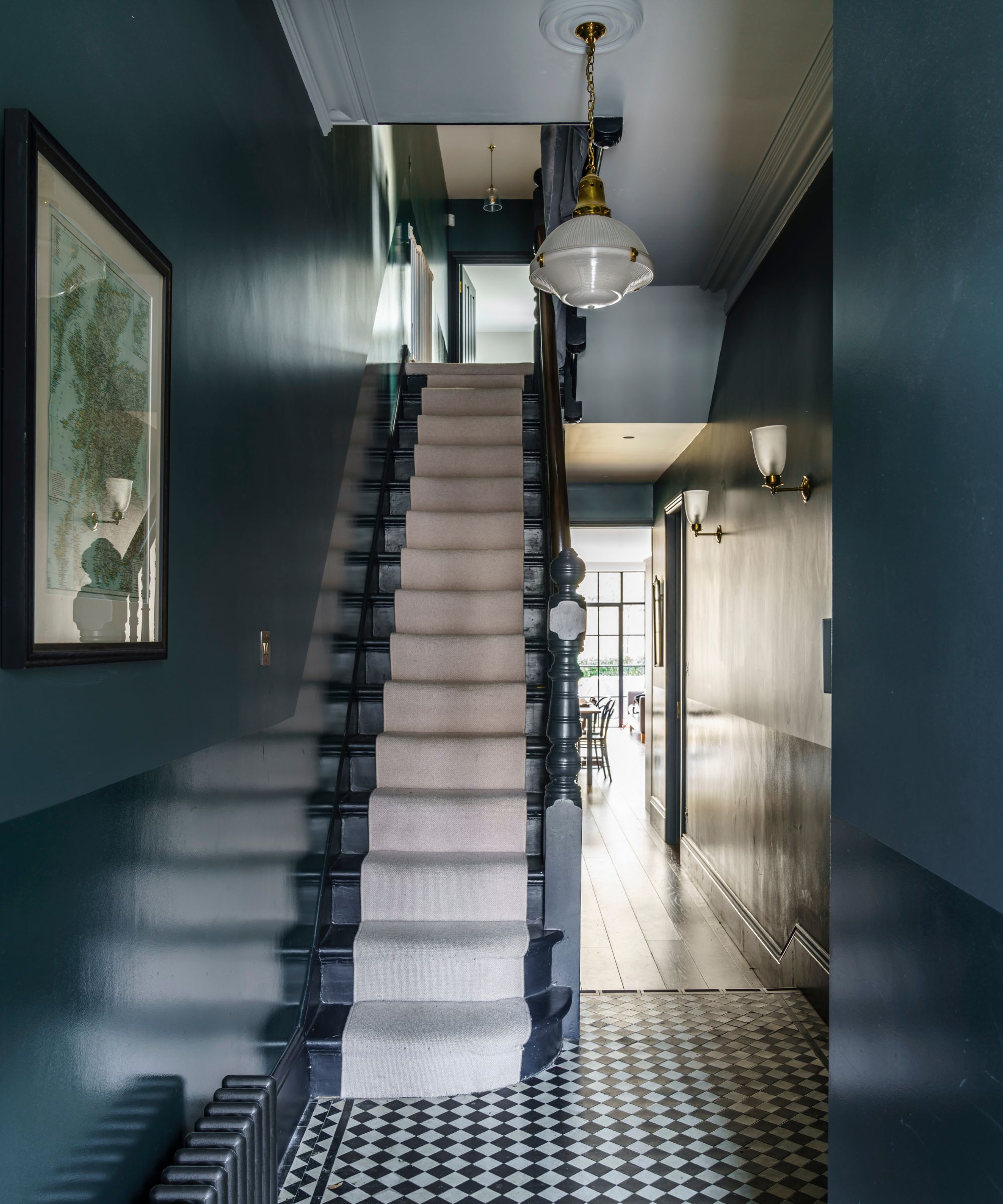 5 beautiful and impactful home improvement projects you can DIY this weekend for under $200 – you don't have to spend big to make a statement
5 beautiful and impactful home improvement projects you can DIY this weekend for under $200 – you don't have to spend big to make a statementFrom painting your fireplace to redecorating your door, little changes can transform and refresh your space
By Ottilie Blackhall Published
-
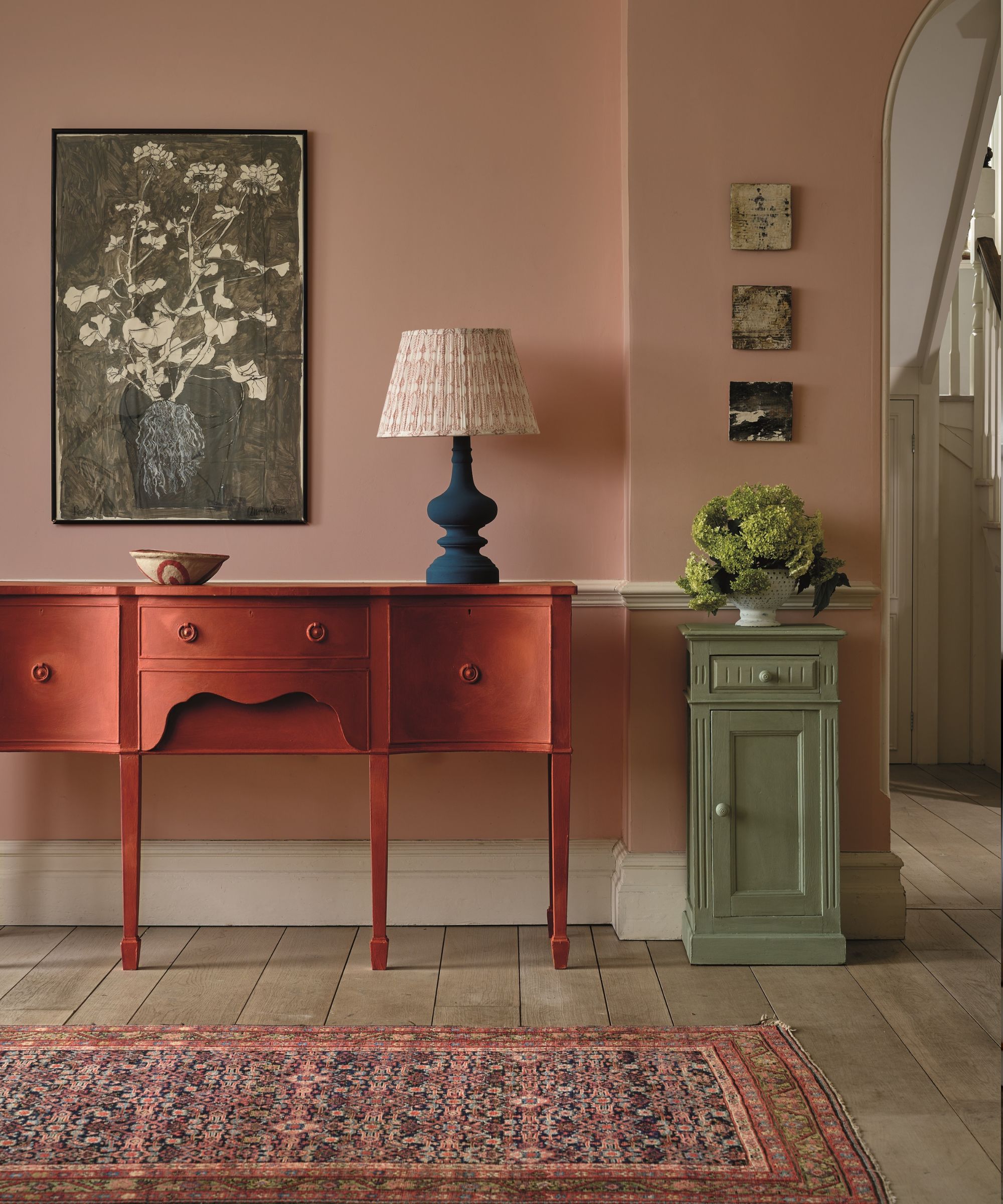 How to paint over stained wood – 6 simple steps expert painters swear by for even, lasting finishes
How to paint over stained wood – 6 simple steps expert painters swear by for even, lasting finishesSkipping even one step will result in chipping paint, experts warn
By Natasha Brinsmead Published
-
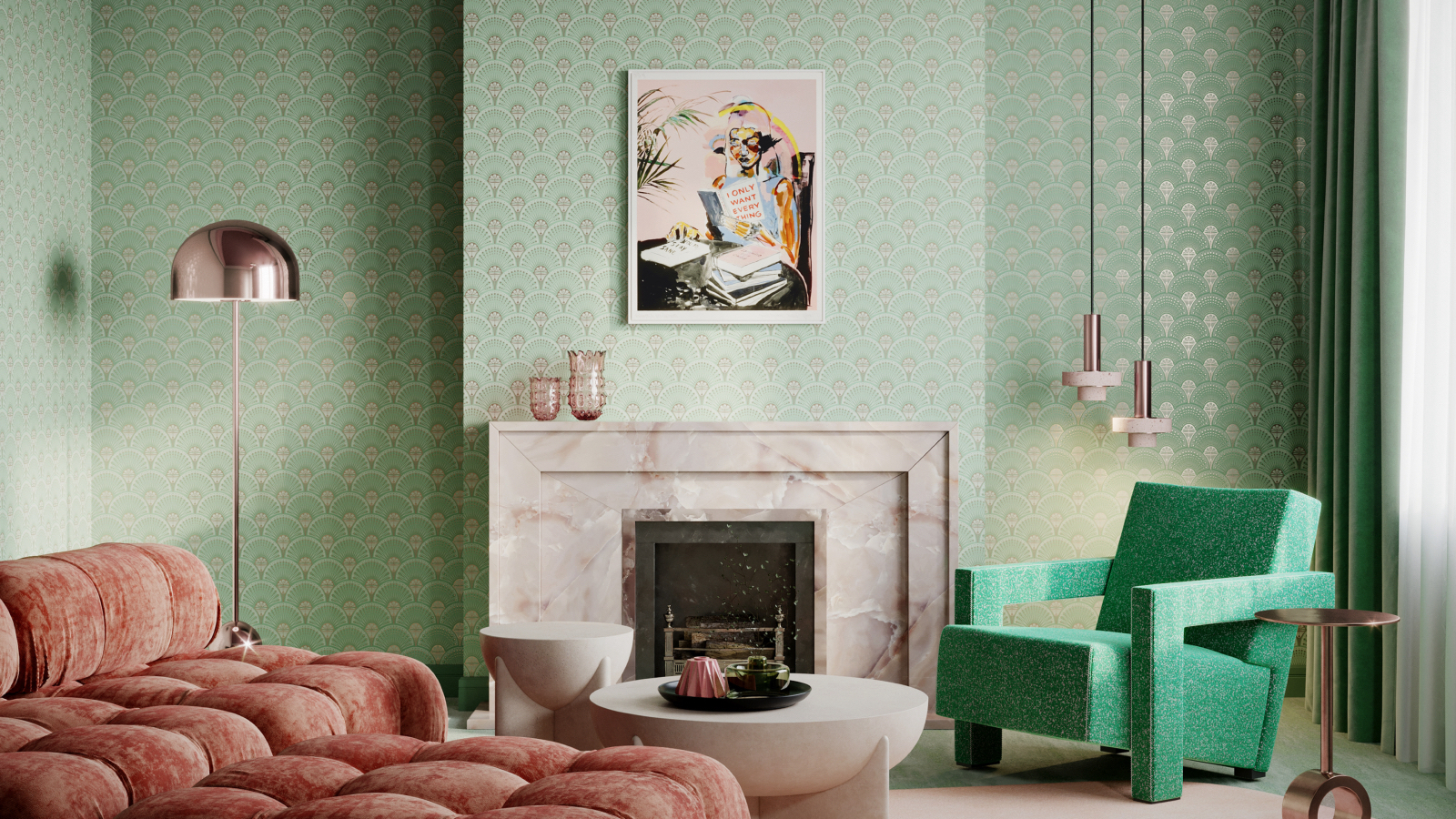 Can you put wallpaper on textured walls? Experts reveal it is indeed possible with this vital step
Can you put wallpaper on textured walls? Experts reveal it is indeed possible with this vital stepPrep, prep and prep some more for wallpapering success
By Sophie Warren-Smith Published
-
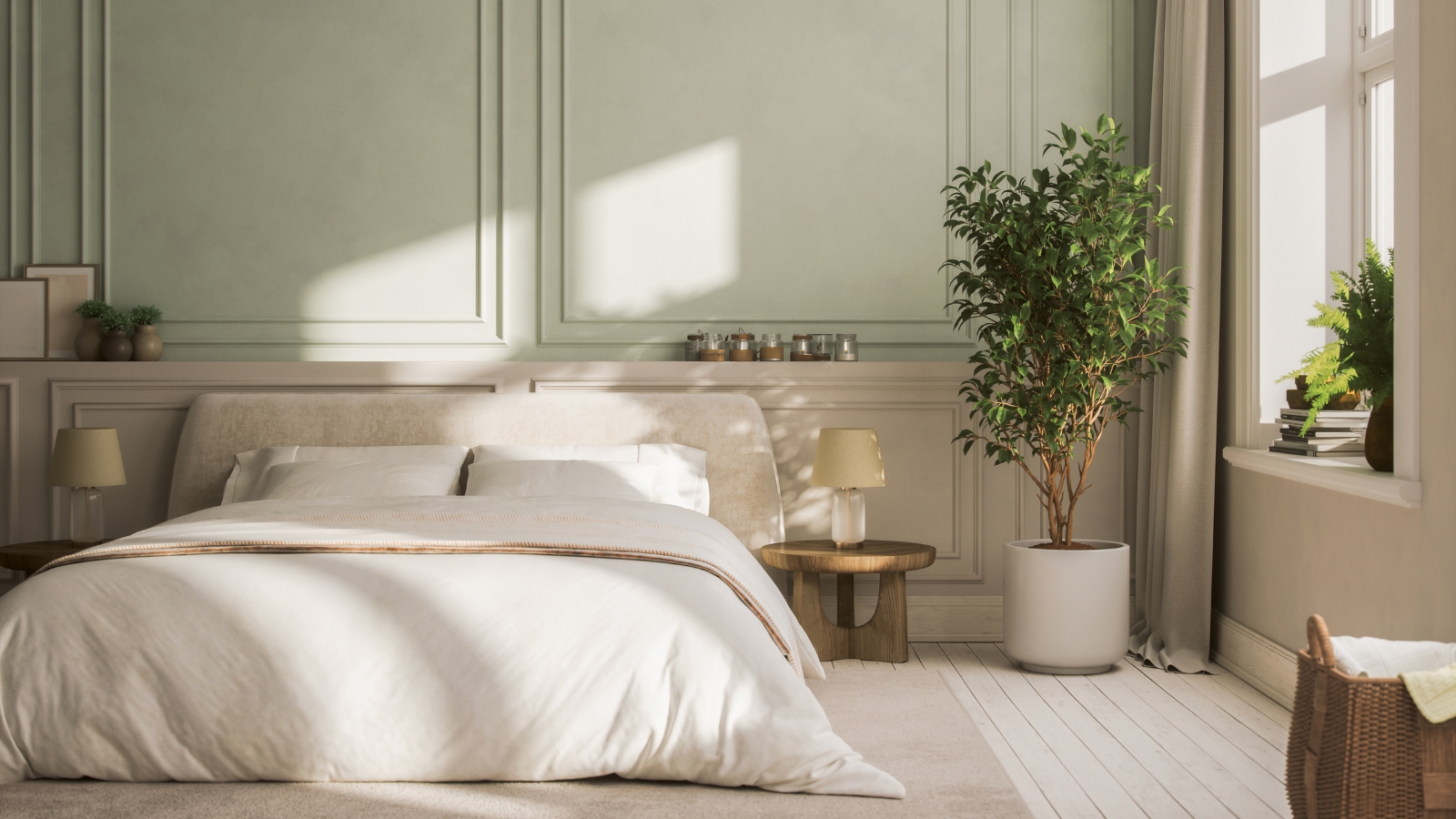 8 helpful ways to re-purpose old pillows – from making handy garden kneelers and draft excluders, to cozy pet beds
8 helpful ways to re-purpose old pillows – from making handy garden kneelers and draft excluders, to cozy pet bedsSustainability experts say these bulky items don't have to go to waste
By Sophie Warren-Smith Published
-
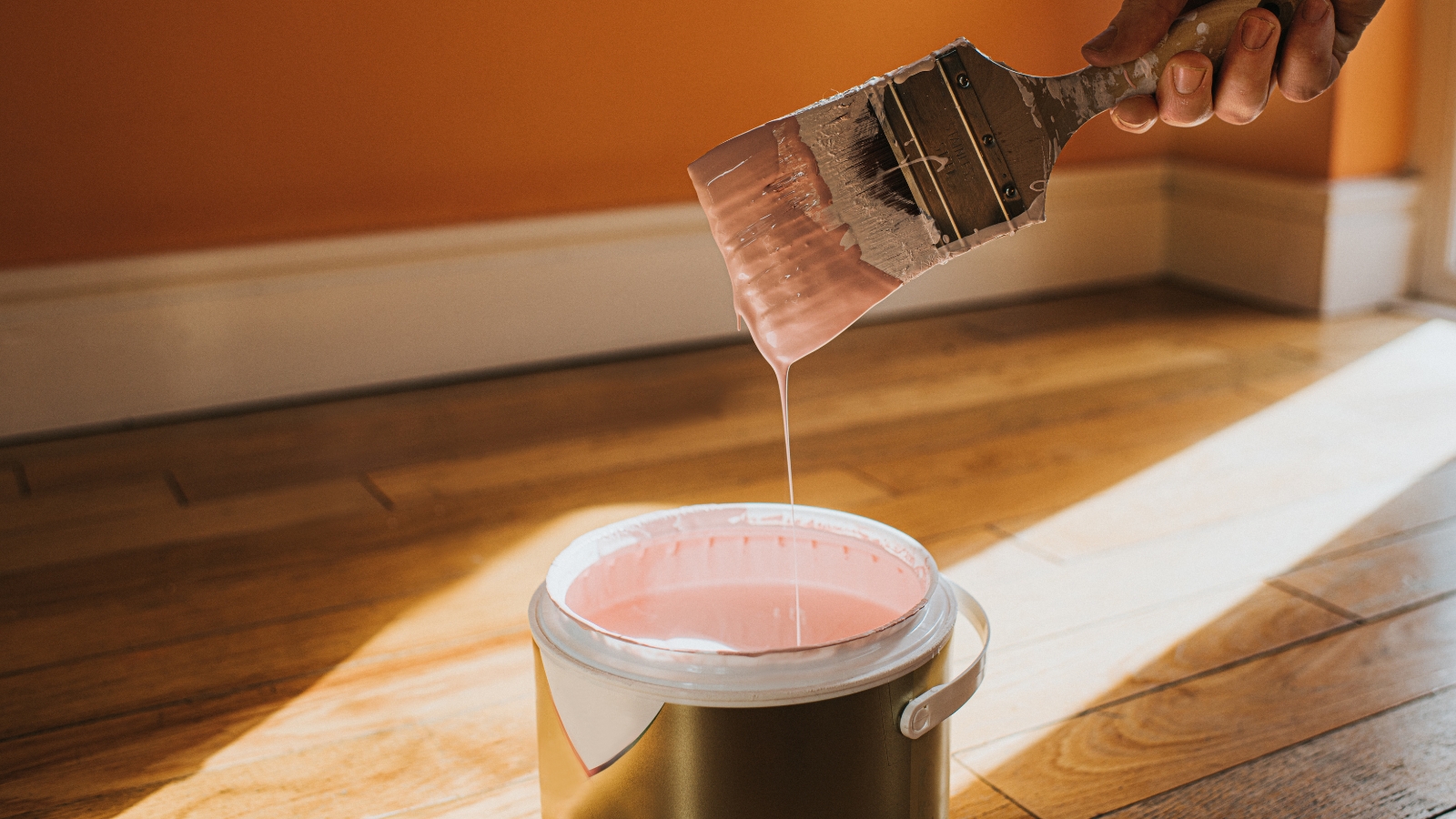 7 practical things you can do with leftover paint around your home including protecting outdoor furniture, tinting cement and creating touch-up kits
7 practical things you can do with leftover paint around your home including protecting outdoor furniture, tinting cement and creating touch-up kitsPro tips to make the most of those extra supplies
By Andy van Terheyden Published
-
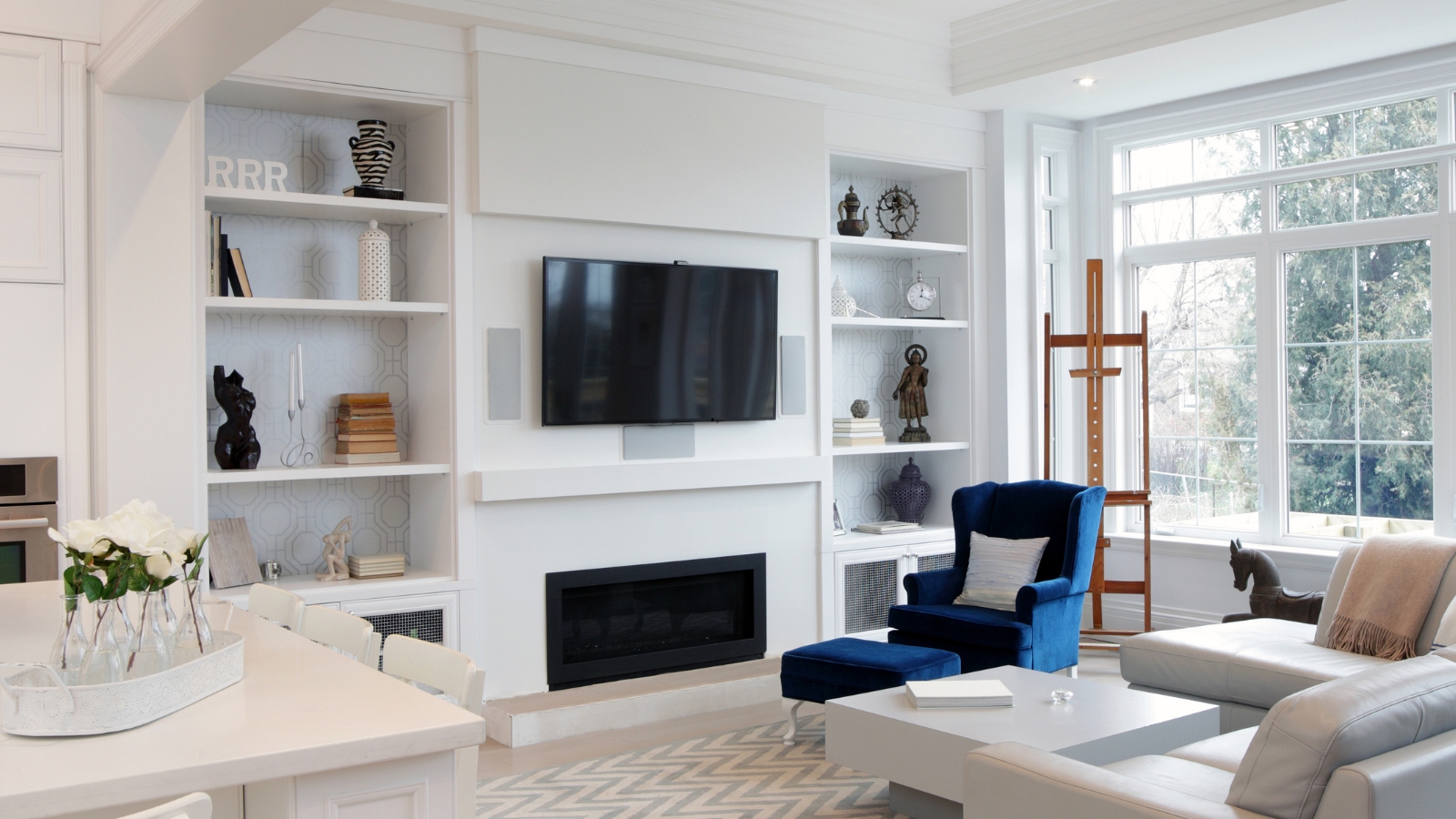 Construction pros reveal the 6 mistakes to avoid when hanging drywall for perfect walls and ceilings
Construction pros reveal the 6 mistakes to avoid when hanging drywall for perfect walls and ceilingsThey see these all the time
By Natasha Brinsmead Published
-
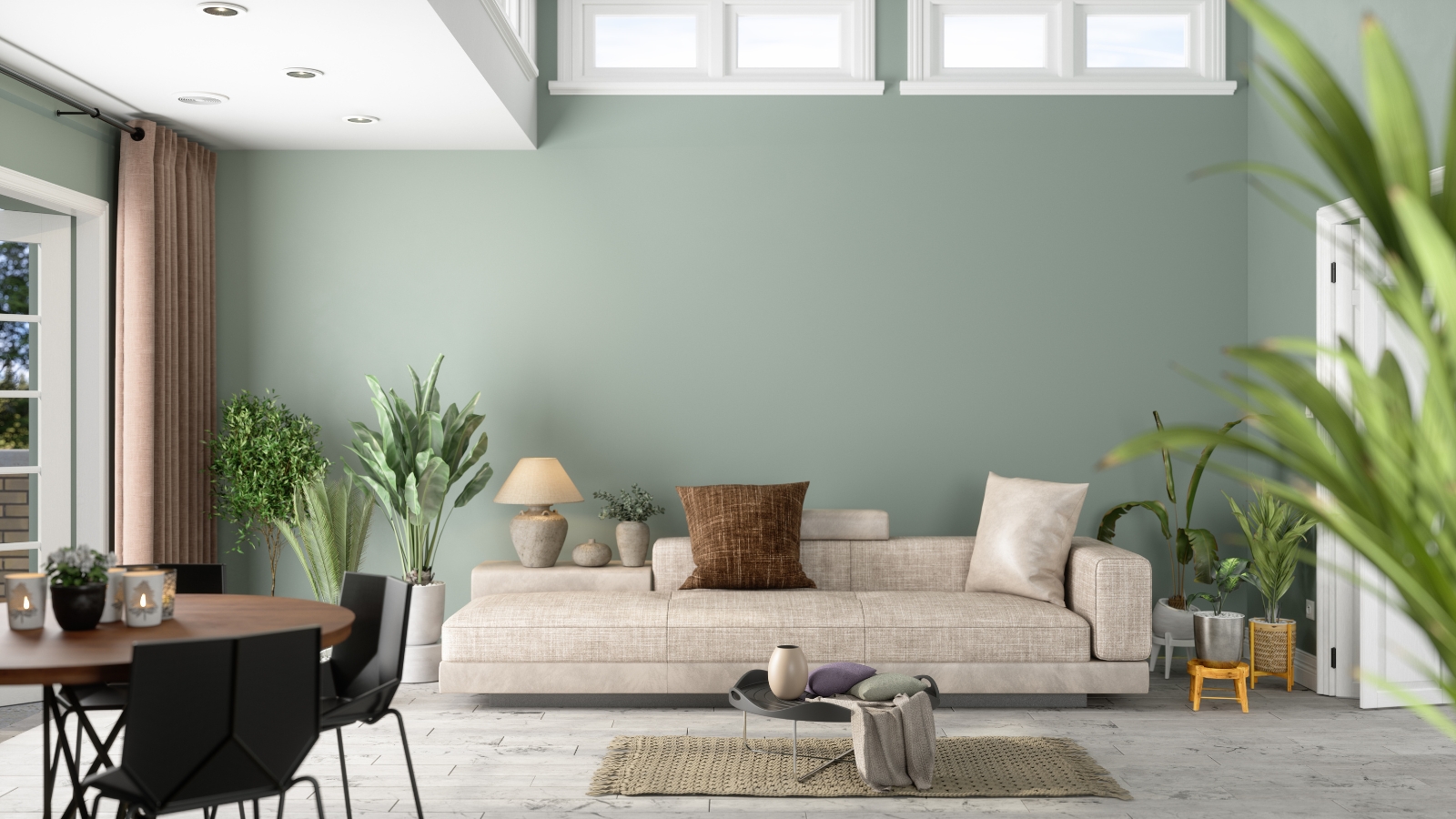 Why is my wall paint bubbling? Decorators reveal why it happens and how you can fix it
Why is my wall paint bubbling? Decorators reveal why it happens and how you can fix itBubbles look unsightly and might indicate a more serious problem
By Ottilie Blackhall Published
-
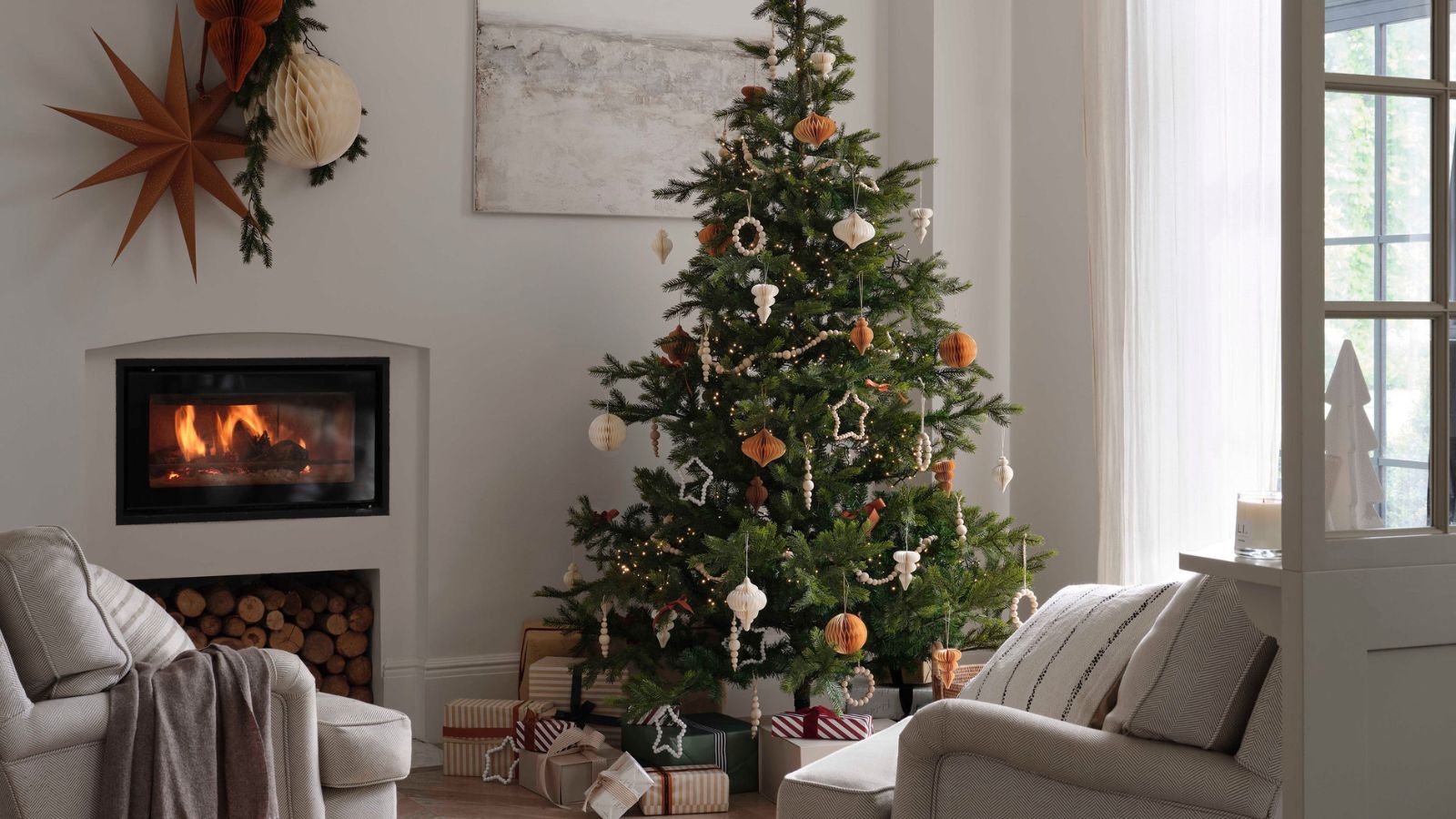 Christmas decorating stalled by missing tools and essentials? These 6 festive DIY job must-haves will get your delayed tasks back on track
Christmas decorating stalled by missing tools and essentials? These 6 festive DIY job must-haves will get your delayed tasks back on trackGet your holiday decorating going again with our Christmas first-aid kit
By Chiana Dickson Published